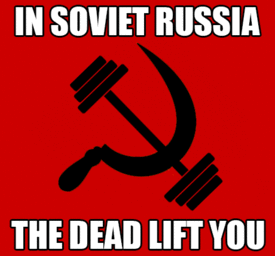Half marathon training stalled.....please help!!!

VanderTuig1976
Posts: 145 Member
Hello,
I just completed Hal Higdon's Novice 2 HM training plan. I am now focusing on running the HM race course in the next 6 weeks leading up to the race. The course is hilly and I mostly ran on flat terrain while I was doing the training plan.
The last two long runs in the training plan and my first run on the race course were dreadful. My energy was sapped, felt exhausted, cotton mouth, and, now that I've started running the hills - I've had IT band issues (big sigh). Once I reach the 9 mi. point, I really start to struggle.
Compared to last season, my average pace is up by 1-2 minutes (2 minutes for hills). I was also able to complete a 12 mi. run without much difficulty.
I really want to run the HM well. By well, I mean not completely blitzed at the end - I know I'll be tired but I don't want to feel like it did me in. I'm aiming for completion in 2:30.
Please critique my current training plan and let me know where I might make some improvements:
Mon. - Strength train (barbell squats + accessory work)
Tue. - 3 mile run
Wed. - Strength train (deadlift + accessory work) and 3 mile run
Thur. - Strength train (bench press + accessory work) and 3 mile run
Fri. - Strength train (overhead press + accessory work)
Sat. - Long run (11-13 miles)
Sun - rest day
Thanks so much - I truly appreciate any advice or recommendations:)
Crystal
I just completed Hal Higdon's Novice 2 HM training plan. I am now focusing on running the HM race course in the next 6 weeks leading up to the race. The course is hilly and I mostly ran on flat terrain while I was doing the training plan.
The last two long runs in the training plan and my first run on the race course were dreadful. My energy was sapped, felt exhausted, cotton mouth, and, now that I've started running the hills - I've had IT band issues (big sigh). Once I reach the 9 mi. point, I really start to struggle.
Compared to last season, my average pace is up by 1-2 minutes (2 minutes for hills). I was also able to complete a 12 mi. run without much difficulty.
I really want to run the HM well. By well, I mean not completely blitzed at the end - I know I'll be tired but I don't want to feel like it did me in. I'm aiming for completion in 2:30.
Please critique my current training plan and let me know where I might make some improvements:
Mon. - Strength train (barbell squats + accessory work)
Tue. - 3 mile run
Wed. - Strength train (deadlift + accessory work) and 3 mile run
Thur. - Strength train (bench press + accessory work) and 3 mile run
Fri. - Strength train (overhead press + accessory work)
Sat. - Long run (11-13 miles)
Sun - rest day
Thanks so much - I truly appreciate any advice or recommendations:)
Crystal
0
Replies
-
I have had the same problem a couple of times, and it turned out to be the heat and humidity. Training in the heat for about two weeks straight really made a difference. I felt an initial boost after about day five of running in the heat and almost back to my best within two weeks. I had to really increase the hydration as well.
Here is an article that helped me.
http://running.competitor.com/2014/07/training/heat-acclimatization-for-runners_12035
0 -
I think having a medium-long run in the middle of the week makes a *big* difference in race endurance. Especially over a hilly course. I would probably temporarily stuff the upper body weights into one day, and on the other day up your run to 5-6 miles (maybe build up, like 4 this week, 5, 6, hang out at six until the race).
For your IT band problems, (a) foam roll (b) get acquainted with your hip flexors. This is a great IT band-focused strengthening routine (which should also carry over to your lifting, btw):
http://strengthrunning.com/2011/02/the-itb-rehab-routine-video-demonstration/
Do you squat proportionally more than you deadlift? (I mean, you probably DL a higher absolute weight, but do they line up, or is your squat more 'advanced' in terms of lifting progression than your DL?)
ETA: And you probably know this, but skip legs day at the very least, the week before your race. (I KNOW, BLASPHEMY, RIGHT?)0 -
I'm with Cheshire: add a medium length run mid week... I'm thinking six miles. I'm no expert, but your total weekly mileage w/o the LR might be a little light... Your LR is over 50% of your base.I am currently training/maintaining for a half in July and my week looks like this:
m: rest
t: 4 miles
w: 6 miles
Th: 4 miles
F: rest or xt
S: 4 miles
Su: 10-12 miles
Good luck!0 -
Thanks so much for the advice - much appreciated! I'm going to shorten my lifting sessions to 2x per week so I can up the mileage on my "short" runs and build a greater mileage base.
0 -
cheshirecatastrophe wrote: »I think having a medium-long run in the middle of the week makes a *big* difference in race endurance. Especially over a hilly course. I would probably temporarily stuff the upper body weights into one day, and on the other day up your run to 5-6 miles (maybe build up, like 4 this week, 5, 6, hang out at six until the race).
For your IT band problems, (a) foam roll (b) get acquainted with your hip flexors. This is a great IT band-focused strengthening routine (which should also carry over to your lifting, btw):
http://strengthrunning.com/2011/02/the-itb-rehab-routine-video-demonstration/
Do you squat proportionally more than you deadlift? (I mean, you probably DL a higher absolute weight, but do they line up, or is your squat more 'advanced' in terms of lifting progression than your DL?)
ETA: And you probably know this, but skip legs day at the very least, the week before your race. (I KNOW, BLASPHEMY, RIGHT?)
I have progressed quicker with my squat than my deadlift; although, I can DL more than I can squat (hope that makes sense). Thanks for the suggestion about not working legs the week prior to the half....I hadn't thought of that but will definitely take that week off from lifting.
I'm going to check out the link - I used my foam roller a bit after my long run but was in so much pain that I'm not sure I rolled long enough to do much good, lol!0 -
cheshirecatastrophe wrote: »
Do you squat proportionally more than you deadlift? (I mean, you probably DL a higher absolute weight, but do they line up, or is your squat more 'advanced' in terms of lifting progression than your DL?)
Just out of curiosity - what is the significance of this?
I would also suggest trying consolidate your lifting into three days and add in a mid range run.0 -
cheshirecatastrophe wrote: »
Do you squat proportionally more than you deadlift? (I mean, you probably DL a higher absolute weight, but do they line up, or is your squat more 'advanced' in terms of lifting progression than your DL?)
Just out of curiosity - what is the significance of this?
I would also suggest trying consolidate your lifting into three days and add in a mid range run.
Squat progression > deadlift progression suggests stronger quads than hamstrings. This can be a big contributor to IT band problems.
Physiologically, you would want to pay extra attention to your glutes, actually, to help overcome this (the problem tends to be that your body learns to engage your quads instead of your glutes). Glute bridges and heel-elevated hip thrusts are *fantastic* for this.0 -
Being rested on race day will make a big difference. Increasing your easy weekly mileage will help.
0 -
cheshirecatastrophe wrote: »cheshirecatastrophe wrote: »
Do you squat proportionally more than you deadlift? (I mean, you probably DL a higher absolute weight, but do they line up, or is your squat more 'advanced' in terms of lifting progression than your DL?)
Just out of curiosity - what is the significance of this?
I would also suggest trying consolidate your lifting into three days and add in a mid range run.
Squat progression > deadlift progression suggests stronger quads than hamstrings. This can be a big contributor to IT band problems.
Physiologically, you would want to pay extra attention to your glutes, actually, to help overcome this (the problem tends to be that your body learns to engage your quads instead of your glutes). Glute bridges and heel-elevated hip thrusts are *fantastic* for this.
Thank you!!! I wondered if weak glutes might be the culprit. I'll definitely incorporate those exercised into my strength training!0 -
cheshirecatastrophe wrote: »cheshirecatastrophe wrote: »
Do you squat proportionally more than you deadlift? (I mean, you probably DL a higher absolute weight, but do they line up, or is your squat more 'advanced' in terms of lifting progression than your DL?)
Just out of curiosity - what is the significance of this?
I would also suggest trying consolidate your lifting into three days and add in a mid range run.
Squat progression > deadlift progression suggests stronger quads than hamstrings. This can be a big contributor to IT band problems.
Physiologically, you would want to pay extra attention to your glutes, actually, to help overcome this (the problem tends to be that your body learns to engage your quads instead of your glutes). Glute bridges and heel-elevated hip thrusts are *fantastic* for this.
Thanks! Good to know!
0
This discussion has been closed.




